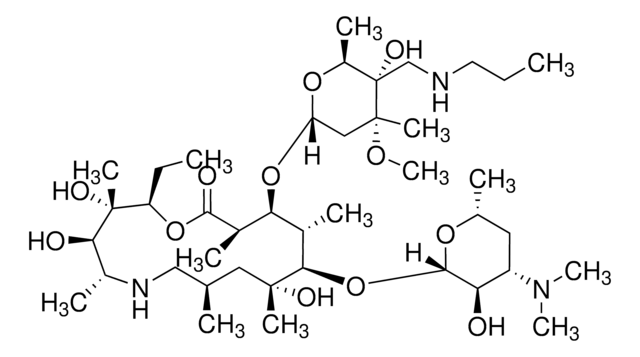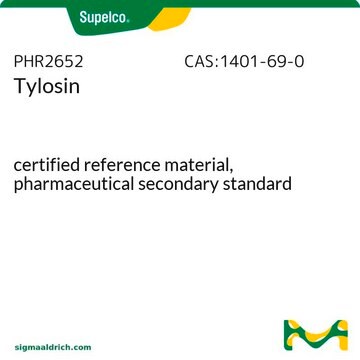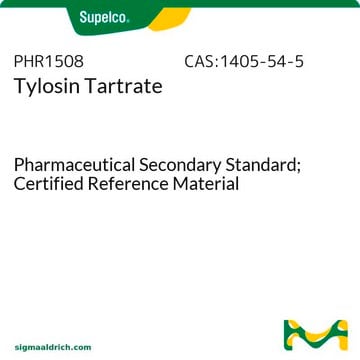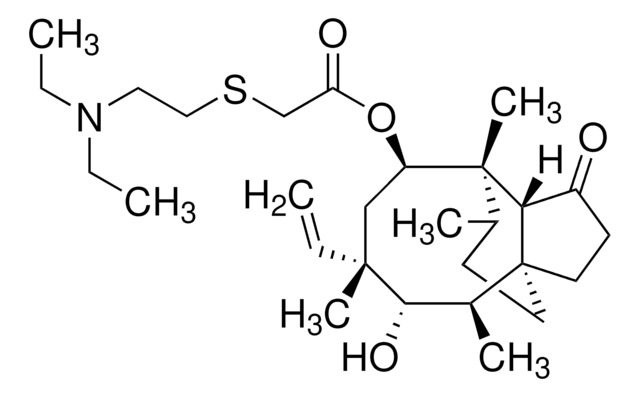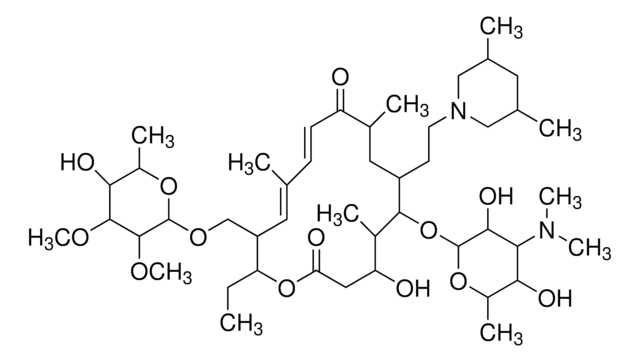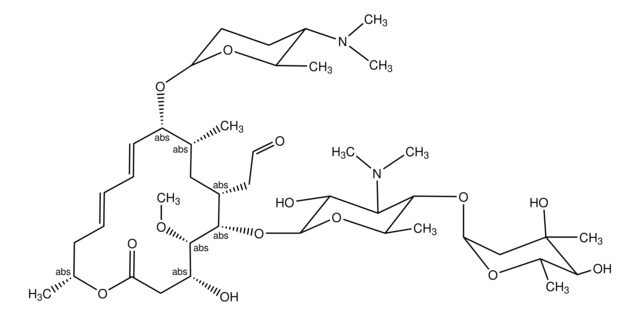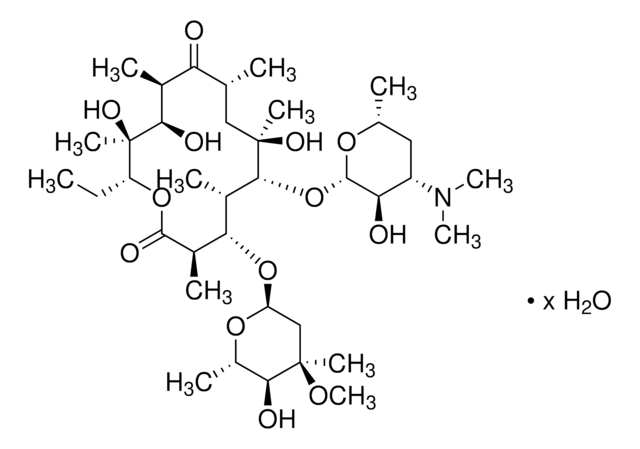33864
Tilmicosin
VETRANAL®, analytical standard, mix of isomers
Sinónimos:
20-Deoxo-20-(3,5-dimethyl-1-piperidinyl)desmycosin
About This Item
Productos recomendados
grade
analytical standard
Quality Level
product line
VETRANAL®
shelf life
limited shelf life, expiry date on the label
technique(s)
HPLC: suitable
application(s)
pharmaceutical (small molecule)
format
neat
SMILES string
CC1OC(OCC(C(CC)O2)/C=C(/C=C/C(C(C)CC(CCN3CC(C)CC(C)C3)C(OC4OC(C)C(O)C(N(C)C)C4O)C(C)C(O)CC2=O)=O)C)C(OC)C(OC)C1O
InChI
1S/C46H80N2O13/c1-13-36-33(24-57-46-44(56-12)43(55-11)40(53)31(8)59-46)19-25(2)14-15-34(49)28(5)20-32(16-17-48-22-26(3)18-27(4)23-48)42(29(6)35(50)21-37(51)60-36)61-45-41(54)38(47(9)10)39(52)30(7)58-45/h14-15,19,26-33,35-36,38-46,50,52-54H,13,16-18,20-24H2,1-12H3/b15-14+,25-19+/t26-,27+,28-,29+,30-,31-,32+,33-,35-,36-,38+,39-,40-,41-,42-,43-,44-,45+,46-/m1/s1
InChI key
JTSDBFGMPLKDCD-XVFHVFLVSA-N
¿Está buscando productos similares? Visita Guía de comparación de productos
Categorías relacionadas
General description
Application
Legal Information
signalword
Warning
hcodes
Hazard Classifications
Acute Tox. 4 Oral - Aquatic Acute 1 - Aquatic Chronic 1 - STOT RE 2
target_organs
Cardio-vascular system
Storage Class
11 - Combustible Solids
wgk_germany
WGK 3
ppe
Eyeshields, Gloves, type N95 (US)
Choose from one of the most recent versions:
¿Ya tiene este producto?
Encuentre la documentación para los productos que ha comprado recientemente en la Biblioteca de documentos.
Los clientes también vieron
Nuestro equipo de científicos tiene experiencia en todas las áreas de investigación: Ciencias de la vida, Ciencia de los materiales, Síntesis química, Cromatografía, Analítica y muchas otras.
Póngase en contacto con el Servicio técnico
